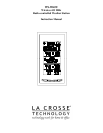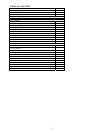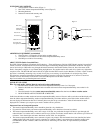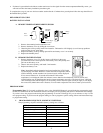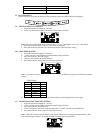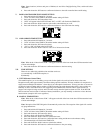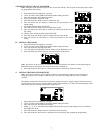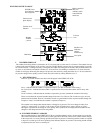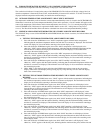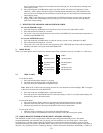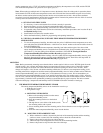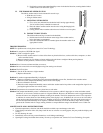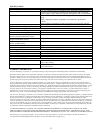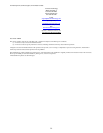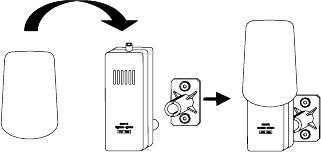
11
monitor temperature only, a TX3U will monitor temperature and display the temperature on its LCD, and the TX3UP
will monitor the temperature via a probe for use in pools, spas, etc.
Note: When setting up multiple units it is important to remove the batteries from all existing units in operation, then to
insert batteries first into all the remote temperature sensor units. Wait until the first transmitter reception is received by
the indoor weather station before inserting batteries into the next transmitter and so forth. After all the transmitters
reception is received, install batteries into the indoor weather station. Transmission problems will arise if this is not done
correctly and if the total time for set-up exceeds 4 minutes.
A. SET-UP OF MULTIPLE UNITS
1. It is necessary to remove the batteries from all units currently in operation.
2. Remove the battery covers to all remote temperature/humidity sensor units.
3. Place all remote temperature/humidity sensor units in a numeric sequential order.
4. In sequential order, install batteries (follow the same battery installation procedures seen in section I. A) of
the Detailed Set-Up Guide).
5. Install batteries into the indoor weather station.
6. Follow the Detailed Set-Up Guide for programming and operating instructions.
B. VIEWING AND OPERATING WITH MULTIPLE REMOTE TEMPERATURE/HUMIDITY
SENSOR UNITS
1. To view the temperature, humidity, heat index and dew point of a different remote temperature sensor unit,
press and release the SNOOZE/CH button. A shift from one “boxed” number to the next should be observed
in the OUTDOOR LCD.
2. To view the Minimum/Maximum temperature, humidity, heat index and dew point: first select which
remote temperature/humidity sensor to read data from (indicated by the “boxed” number), then press the
OUT button. To view the readings from different transmitters, follow IV. B. Viewing the Outdoor
Temperature/Humidity/Heat Index/ and Dew Records paragraph above.
4. To reset the Minimum/Maximum readings, select first which remote temperature/humidity sensor to read
data from. Press the OUT button to view the outdoor MIN/MAX records. Then follow the steps in IV. C.
Resetting the Minimum and Maximum Records paragraph above.
MOUNTING
Note: Before permanently mounting ensure that the indoor weather station is able to receive WWVB signals from the
desired location. Also, extreme and sudden changes in temperature will decrease the accuracy of the indoor weather
station, and changes in elevation will result with inaccurate weather forecasting for the next 12 to 24 hours. These
changes will require a 12 to 24 hour wait before obtaining reliable data. To achieve a true temperature reading, avoid
mounting where direct sunlight can reach the remote temperature/humidity sensor or indoor weather station. While the
remote temperature/humidity sensor is weather proof, avoid submersion in water or snow. We recommend that you
mount the remote temperature/humidity sensor on an outside North-facing wall. The sending range is 330ft—obstacles
such as walls, concrete, and large metal objects can reduce the range. Place both units in their desired location, and wait
approximately 15 minutes before permanently mounting to ensure that there is proper reception. The indoor weather
station should display a temperature and humidity in the OUTDOOR LCD within 4 minutes of setting up.
I. THE REMOTE TEMPERATURE/HUMIDITY SENSOR
The remote temperature/humidity sensor can be mounted in several ways:
• With the use of screws
• Using adhesive tape
A. MOUNTING WITH SCREWS
1) Remove the mounting bracket from the remote
temperature/humidity sensor.
2) Place the mounting bracket over the desired
location.
3) Through the two screw holes of the bracket, mark
the mounting surface with a pencil.
4) Screw mounting bracket onto the mounting surface. Ensure that the screws are tight against the
bracket.
5) Insert the remote temperature/humidity sensor into the bracket.
B. MOUNTING WITH ADHESIVE TAPE
1) With a nonabrasive solution, clean and dry the back of the mounting bracket and the mounting
surface to ensure a secure hold. The mounting surface should be smooth and flat.
2) Remove the protective strip from one side of the tape.
3) Adhere the tape to the designated area on the back of the mounting bracket.
4) Remove the protective strip from the other side of the tape.



